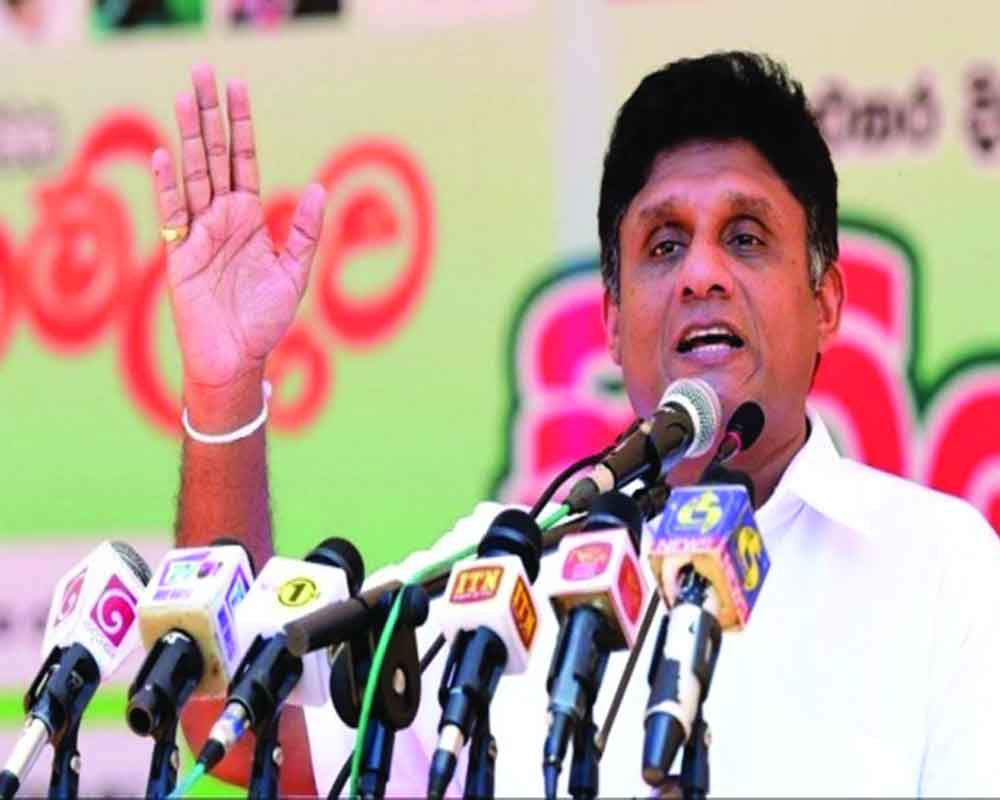Has Premadasa’s party thought through the country’s problems or are they merely reacting to a crisis, economic as well as ethical?
Sri Lanka’s main Opposition Samagi Jana Balavegaya (SJB) last week presented a constitutional amendment bill that seeks to abolish the 44-year-old presidential system of governance and replace it with a system that reinforces constitutional democracy. Presumably, SJB supremo Sajith Premadasa has the vision of a parliamentary system like the one we have in New Delhi. Premadasa’s party attributes the cause of the current acute economic crisis to inadequate control of the members of parliament over President Gotabaya Rajapaksa. The implication is that the President has too many free wings whereby he had a free flight and Sri Lanka’s economy crashed.
The USA is the first constitution that was truly presidential and based on the theory of the separation of powers. The three powers were legislative, executive, and judicial. The working of the British Parliament was critically observed by the creators of the USA constitution of 1781, on the morrow of the American War of Independence won by General George Washington in 1776. The distinguished constitutionalists like Alexander Hamilton, James Madison, and others found that the British worked their governance well, but it was possible because of their faithful character and not due to the written down document. Such a written effort was essential because the distances in the United States were considerable and the means of communication were limited. The fastest in the eighteenth century was horseback.
The oddities, as practiced in Westminster by the unwritten constitution, were quite a few. The members elected to Parliament were primarily tasked with making laws, but soon they set about forming the Government, which then depended on parliamentary support. The law-making took a back seat. The upper house, namely the House of Lords, helped to form the Privy Council — the highest law court and, therefore, the highest level of judiciary where a suit could be appealed to. It was also India’s apex court until Independence. We in India practice what we have borrowed from Westminster.
There is no doubt, however, that the USA constitution has helped to provide an excellent system of governance. It has given minimum Government with the country achieving a fabulous record of development. In the course of these two and a half centuries or less, the American constitution has been amended only 26 times. We, in India, have amended our national document some 140 times. The less one amends, the message is that the constitution suits the needs of the country. The more the amendments, the less suitability.
Has Premadasa’s party in Colombo thought through the country’s problems or are they merely reacting to a crisis, economic as well as ethical? Have the country’s rulers been sincere in the performance of their duties? Or have they been frivolous? The experience of many a small nation has been they begin their association with China by buying out the leaders of the junior partner. Thereafter, the Yellow Giant imposes conditions; there is a restaurant in Nairobi, I have been reliably told, wherein Kenyans are not allowed to enter. Mao Zedong used to say that power grows out of the barrel of a gun. Its more modern version is authority flows from the pocket of the master. No constitution can be a solution to such a problem.
Sri Lanka has been unfortunate in having to face a series of crises. The Easter terrorism and the Covid, to name a few, Such happenings are enemies of tourism which brought in handsome foreign exchange. Before this, the country faced a prolonged and violent civil war centered around Jaffna. Still, the country went for massive borrowing to build excellent highways, and upgrade its ports. But the fundamental of the economy was weakened considerably. Then came the Russo-Ukraine war and Sri Lanka battled to ward off its consequences on its economy, especially the spike in petroleum prices. For a small country with a struggling economy, these blows were difficult to withstand.
It is interesting to note that China increased its footprint significantly from 2010 to 14, even when a huge amount of developmental assistance came to Sri Lanka from India, a large portion of which were in the form of grants, not loans. The affinity of the then Rajapaksa administration with China for readily extending financial loans to fulfill Mahinda Rajapaksa’s developmental vision for the country without questioning the human rights records or progress of the political reconciliation in the post-war period had helped China strengthen its strategic presence in Sri Lanka.
Regardless of these misfortunes as well as mistakes, how would a constitutional change help to cure these economic problems? If anything, what should help is a financial discipline, reining in the executive, say the President’s power to spend, and not writing a new national document when the economy is in hospital.
The writer is a well-known columnist, author, and former member of Rajya Sabha. The views expressed are personal.


























